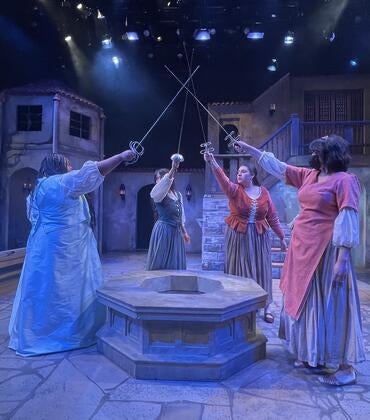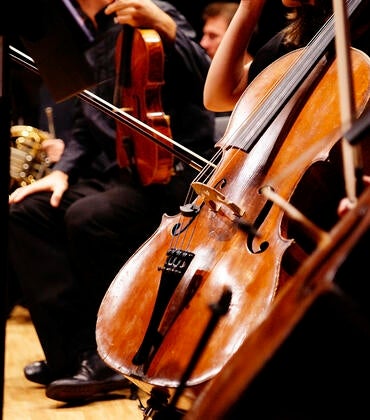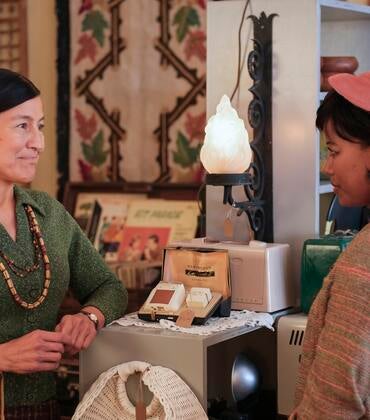
The first performance of the UCR's staging of “Macbeth” will be Feb. 13 at 8 p.m. in the Studio Theatre. Additional performances of the play, written by William Shakespeare and adapted and directed by Miles Anderson, will run through Feb. 22.
When the audience walks into the theatre, they will enter a darkened and misty landscape filled with stark and ominous music. Three weird sisters dressed in black and gray wander, silently considering all who enter. Encircling the floor are runes and when the witches begin adding characters to the circle, the clicking of the chalk becomes a beat within the music like the clicking of time. The audience becomes mesmerized and falls under the spell that unfolds around them. The play opens as the three sisters speak of their past exploits, demonstrate their magic, and discuss their plan to draw the loyal soldier and nobleman Macbeth into his undoing. The sisters, played by UCR undergraduates Sin Sze Man, Juliette Lazard, and Kamdyn Ridenour, exude a sinister threat that is palpable. It doesn’t threaten physical harm, but an unnerving threat to the spirit.
Fresh from his victory against the traitorous Thane of Cawdor, Macbeth and his fellow commander Banquo encounter the three sisters. They don’t believe their prophesies at first, but then they begin to come true.
Lady Macbeth reads the letter her husband has sent ahead, and she is beguiled by the prophesies. The lighting here, with its use of spotlights and steep angles, casts Lady Macbeth’s dark shadow across the washed-out stage. It is as if she is split into two. The audience sees the cracks begin to open that will swallow them all.
At first resistant, Macbeth is goaded by his wife to believe the weird sisters and commit regicide in an effort to seize the crown that will spiral into more murders and suffering. Lady Macbeth is ruthless in her ambition. While some critics ponder why her ambition ran to such extremes, Anderson, a visiting assistant professor in the Department of Theatre, Film and Digital Production, situates her desires in loss.
“I wanted to show a woman suffering from just having lost her baby,” Anderson said. “The memory of that plagues her all the time and she feels the only thing she has left is to forward her husband's ambition.”
This isn’t a simple story of man and woman’s slide into murder and chaos. We see them in their moments of doubt and certainty. Characters experience delight and horror in the same scene. Students Sterling Taylor and Olivia Jennings bring to Macbeth and Lady Macbeth respectively, their humanity. Even as the audience is horrified by their actions, they feel sympathetic and pity for these two people bound by a fate they cannot escape. We feel trapped with them. We feel their anguish and false hope.
While the main roles draw the attention of the audience, it is worth noting the full company. In small gestures they depict people in a fluid and dynamic situation from having a good time to disbelief, to the fear something evil might befall them, to the relief of escaping madness as the main action takes place. They add layers to the performance that deepens the experience and keeps the audience emotionally riveted to their roller coaster.
It was a challenge to stage this production in five weeks. There are students who haven’t acted on stage before, much less done Shakespeare. Anderson and his wife Bella Merlin, a UCR distinguished professor and accomplished actor, encouraged the students to use Shakespeare’s poetry and discover their relevant vocal intonations. “They've been brilliant,” Anderson said.
Anderson hopes the audience leaves “Macbeth” with catharsis and the feeling of being entertained. He also hopes “it stimulates them to see more Shakespeare. He’s funny and brilliant and he wrote about absolutely everything in the human condition.”
For more information and tickets visit the UCR Events Calendar.




